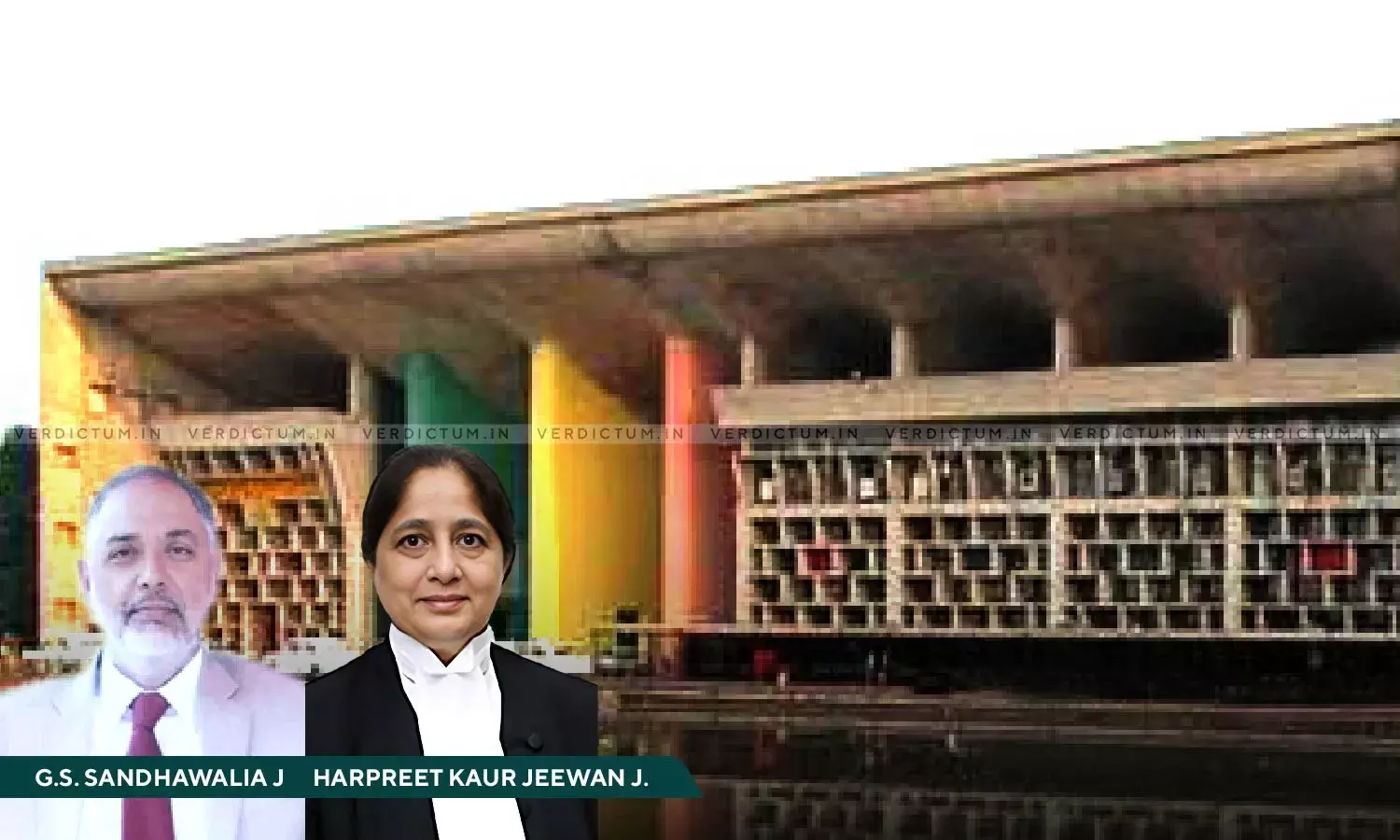'Brazen Act Of Impunity', 'Openly Violated Constitutional Morality': P&H HC Strikes Down Haryana Law Of Domicile Reservation In Private Sector Jobs
The Punjab and Haryana High Court has held that Haryana State Employment of Local Candidates Act 2020 that provided for 75% reservation in private sector jobs to persons domiciled in Haryana is unconstitutional.
The court observed that the State cannot discriminate against the individuals on account of the fact that they do not belong to a certain State and have a negative discrimination against other citizens of the country.
The Bench of Justice Gurmeet Singh Sandhawalia and Justice Harpreet Kaur Jeewan observed: "State has directed the private individual to do what itself is barred from under the Constitution. Such a brazen act of impunity, thus, cannot be swallowed by the Constitutional Courts."
The court added that the concept of constitutional morality has been openly violated by introducing a secondary status to a set of citizens not belonging to the State of Haryana and curtailing their fundamental rights to earn their livelihood.
Senior Advocate Akshay Bhan, among others, appeared for the petitioner, while Senior Counsel Puneet Bali and ASG Satya Pal Jain, among others, appeared for the respondents.
In this case, the impugned Act provided for 75 per cent reservation for local youth in private sector jobs with a monthly salary of less than ₹30,000 from January 15, 2022. It applied to all companies, societies, trusts, partnership firm and limited liability partnership firms and any person employing ten or more persons or an entity, as may have been notified by the Government. A batch of petitions challenged the validity of the Act.
Following were the issues considered by the court:
- Whether the writ petition would be maintainable keeping in view the fact that the Act has been challenged principally by an association of persons and whether they could claim the violations of the fundamental rights under Part-III of the Constitution of India and whether they are liable to be heard on merits?
- Whether it was within the ambit of the State to legislate upon the issue in question in view of the specific bar provided under Article 35 of the Constitution of India and whether the legislation would be covered under Entry No.81 of the Union List?
- If Question No.2 is answered either way, whether the State could provide for a legislation to private employers to do what was forbidden for it to do under the Constitution of India?
- Whether the legislation provides reasonable restrictions in the interest of the general public and thus gives the right to the State under Article 19(5) and 19(6) of the Constitution of India to justify the same?
The court answered all these questions in favour of the petitioners.
The High Court held that, "the powers of the State legislature cannot be to the detriment to the national interest and they cannot be directly encroaching upon the power of the Union."
Further, the Court termed the legislation as a manifestation of discriminatory policy which classified non-residents as "not one of us" and therefore, not eligible for employment. In furtherance, the Court observed that, "The mental attitude towards individuals and the issues have to be read by the text and spirit of the Constitution and not keeping in mind the popular notions of society and the constitutional culture which has time and again held as a check against the tyranny of the majority and the attitude of respect and reverence to one and all. The loss of authority by the Constitutional Court itself would imperil democracy."
Therefore, the Court strongly held that it was beyond the purview of the State to legislate on the issue and restrict the private employer from recruiting from the open market for the category of employees who were receiving less than Rs.30,000/- per month.
The Court also stressed on the infringement of Constitutional principles, and in that vein, observed that, "it was the responsibility of the State to curb any propensity or proclivity of popular sentiment or majoritarianism to contend that popular sentiment could not over ride the rights of the citizens of the country nor promote the local provincial interest which is clear from the objects and reasons of the Act. Thus, freedom given under Article 19 of the Constitution of India could not be taken away and the impugned provisions are falling foul and are liable to be declared unconstitutional as a wall could not be built around by the State and the spirit and sole of the oneness of the Constitution of India could not be curtailed by the parochial limited vision of the State. The fact that the nation would crack down under rigour if the text and spirit of the Constitution of India is not imbibed by the citizens and it has to be cultivated by the people so that they are able to protect the same and the attitude of respect and reverence has to be maintained towards their fellowmen."
In similar context, the Court further held that the exploitation of the prohibition to private employment by way of a legislative command while keeping States out of the said restrictions and putting the employer under the domain of criminalization on account of the violation of the same can be termed as unconstitutional as a private individual could not be asked to do what the State has been forbidden for itself.
The Court also held that the Act imposed unreasonable restrictions regarding the right to move freely throughout the territory of India or to reside and settle in any part or the territory of India.
Cause Title: IMT Industrial Association and another vs State of Haryana and another




